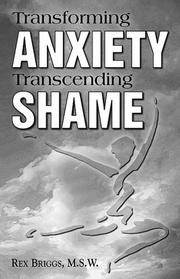
Let’s do some sleep math.You lost two hours of sleep every night last week because of a big project due on Friday.On Saturday and Sunday,you slept in,getting four extra hours.On Monday morningi, you were feeling so bright-eyed that you only had one cup of coffee,instead of your usual two.But don’t be cheated by your energy.You’re still carrying around a heavy load of sleepiness, or what experts call“sleep debt”——in this case something like six hours,almost a full nights’ sleep.
Sleep debt is the difference between the amount of sleep you should be getting and the amount you actually get.It’s a deficit(缺乏)that grows every time we skim some extra minutes off our nightly sleep.“People accumulate sleep debt gradually without being noticed,”says William C.Dement,founder of the Stanford University Sleep Clinic.Studies show that such short—term sleep deprivation leads to a foggy brain,worsened vision,and trouble remembering. Long-term effects include obesity,insulin(胰岛素)resistance, and heart disease.A survey by the National Sleep Foundation reports that we’re losing one hour of sleep each night一一more than two full weeks of sleep every year.
The good news is that,like all debt, with some work,sleep debt can be repaid. Adding an extra hour or two of sleep a night is the way to catch up.For the long—term lack of sleep,take it easy for a few months to get back into a natural sleep pattern.
Go to bed when you are tired,and allow your body to wake you in the morning(no alarm clock allowed).You may find yourself catatonic(有紧张症的)in the beginning of the recovery cycle:expect to have ten hours shut-eye per night. As the days pass, however,the amount of sleeping time will gradually decrease.
So earn back that lost sleep——and follow the dictates of your innate(固有的)sleep needs. You’ll feel better.“When you put away sleep debt,you become a superman,”says Stanford’s Dement,talking about the improved mental and physical capabilities that come with being well rested.
51.If you have short—term sleep deprivation, ____________.
A.you can think and remember things clearly
B.you can still see everything very clearly
C.you can drive your car easily
D.you may have a poor sight
52.The example of sleep math is used to show____________
A.in what case you build up a sleep debt
B.why you need six hours’ sleep every night
C.why you are full of energy even when you don’t haye enoug sleep
D.you should drink coffee to keep energetic when you don’t have enough sleep
53.The author begins Paragraph 3 with ____________.
A.an order B.a story C.a definition D.an example
54.By saying the undedined sentence in the last paragraph,Dement means ____________
A.a superman always needs a lot of sleep
B.you will be in a good state with enough sleep
C.you can become superman after you repay your debt
D.You will become superman if you don’t make up for sleep debt
55.What might be the most suitable title for the passage?
A.Can you catch up on lost sleep? B.How can you keep energetic?
C.Can you have a good sleep? D.What is sleep debt?
 新思维假期作业暑假吉林大学出版社系列答案
新思维假期作业暑假吉林大学出版社系列答案 蓝天教育暑假优化学习系列答案
蓝天教育暑假优化学习系列答案科目:高中英语 来源: 题型:阅读理解
While I was in 9 th grade, I built a circuit (电路装置) for the traffic system of our city. After getting the first prize. I got this valuable advice from my father; “Do whatever interests you, and don’t let the work challenge you, make sure you are challenging that work.”
I have always preferred the projects which are challenging and related to real life problems. I clearly remember building a shipping program several years ago. I divided the whole project into several small sections. When I understood it clearly, used my brainstorming skill on it, and gave some basic ideas. Then I asked my professor for help before jumping into coding (编码). At first, I did not know how to ask questions correctly and always asked the question “How do I do it?” As I kept working and discussed with my professor, I became more comfortable and those “how ”questions soon turned into “what if I do this and that” types of questions.
It took me four days to write the code. The desire to solve the problem kept me sleepless all nights brainstorming in even greater details. Every time I saw my program running smoothly, I exploded with joy. I still remember the last day of my work. I was getting some problem and didn’t know what to do. At that moment, a man came in to clean. He has headphones, and he was dancing while cleaning the room. Seeing this, I burst out laughing. That moment calmed me. I regained energy and interest and started to work again, and soon I fixed the problem.
My success in the project proved that breaking up a large problem into small parts could help find a possible solution. Discussing the problem with others was also very beneficial. Now I have gained the confidence to attempt any kind of project.
59.According to the passage, the writer was interested in .
A.developing traffic systems
B.doing challenging projects
C.winning great prizes
D.writing different codes
60.The writer asked the question “how do I do it” at first because .
A.he had no clear idea about his program
B.he was too shy to express himself
C.he wanted to he understood easily
D.he preferred this kind of question
61.We learn from the passage that the writer’s shipping program .
A.would benefit people a lot
B.was done together with others
C.was difficult and needed patience
D.cost much money and energy
62.What would be the best title of the passage?
A.Do It Yourself
B.No Pains, No Gains
C.Learning with interest
D.Practice Makes Perfect
查看答案和解析>>
科目:高中英语 来源:河北省保定一中2009-2010学年度高二下学期第一次阶段考试 题型:阅读理解
D
These days, if you still think the cell phone is just for talking, you’ll get laughed at. Yes, it’s true, voice-only handsets have become out of date. Today’s do-it-all mobiles have a lot in common with the computer. The only difference may be that they fit in your pocket and you pay by the minute to use th em. Some of the things a cell phone can do for you will be available this year:
em. Some of the things a cell phone can do for you will be available this year:
Surf at speed
Cell phones that let you use the Web have been around for years. So, what’s new? Well, faster third-generation(3G)networks that let you surf at anywhere. This then allows a carrier to send video, music, and games to your phone. Possible choices are from LG Electronics VX 8000 and Motorola V1150.
Listen as you go
The problem with most cell phone MP3 players is that they hold only a handful of songs. But, that’s about to change. Sony Ericsson’s new W800i can hold around 150 songs in its 500 MB memory. And Samsung’s SPH-V5400 even comes with a 1.5 GB hard drive. Mobile phones may eventually replace mini-MP3 players, especially for teens.
Say cheese
Camera cell phones are not new either. But, most of them have limitations: around 1-megapixel(百万像素). But new technology has made 2-megapixel units more common, and 3-megapixel units are showing up soon. Some 2-megapixel models, like Sony Ericsson’s K750i, offer limited zoom and focus controls. Others, like LG’s recent A7110, can even capture 30 minutes of full-motion video.
Portable TV
You say you like “watching TV”? That’s what Samsung  MM-A700 wants to give you. The new model lets users watch popular TV programmes— for a fee. Other choices are Nokia’s 6620, Sanyo’s MM7400 and NEC’s N940. The NEC model lets you watch public TV— no fee.
MM-A700 wants to give you. The new model lets users watch popular TV programmes— for a fee. Other choices are Nokia’s 6620, Sanyo’s MM7400 and NEC’s N940. The NEC model lets you watch public TV— no fee.
The above are just a handful of what you’ll see in the coming months. Further down the road, your mobile phone may play a host of other roles, such as mobile credit card, position locator... So what is there that a cell phone can’t do?
53. Which of the following models should you choose to listen to the music?
A. Samsung’s SPH-V5400 and Nokia’s 6620.
B. Sanyo’s MM7400 and NEC’s N940.
C. Sony Ericsson’s W800i and NEC’s N940.
D. Sony Ericsson’s W800i and Samsung’s SPH-V5400.
54. What’s the difference between NEC’s N940 and other models?
A. It allows you to surf the Internet at a high speed.
B. It lets you watch public TV for free.
C. It can hold as many as 150 songs.
D. It can capture 30 minutes of full-motion video.
55. Which of the following statements is TRUE according to the passage?
A. Camera cellphones of 3-megapixel units will appear soon.
B. It is certain that a cellphone can do anything in the near future.
C. Today’s do-it-all mobiles have nothing in common with the computer.
D. All the functions of the models mentioned in the passage are completely new.
56. This passage may be ________.
A. a survey to find the development of cellphones
B. an introduction to some new models of cellphones
C. a science fiction trying to attract readers’ attention
D. an advertisement trying to persuade you to buy new cellphones
查看答案和解析>>
科目:高中英语 来源:2012-2013学年广东省汕头市金山中学高二上学期期末考试英语试卷(带解析) 题型:填空题
首先请阅读下列书城畅销书的封面及基本信息, 第61-65题是这些书的简要内容,请匹配相关的书名。
| A.Foreword | |
 | The Antidepressant Survival Guide: Beat the Side Effects of Your Medication by Robert J. Hedaya, M.D, Robert J. Hedaya, M.D., is a clinical professor of psychiatry at Georgetown University Hospital's Department of Psychiatry. Motto: Live well. |
| B.How Fear Limits Us | |
 | On Becoming Fearless... in Love, Work, and Life by Arianna Huffington Arianna Huffington was raised in Greece by her fearless mother. She has written this book for her two daughters in the hope that they will lead fearless lives. Motto: Overcome the obstacle, get over the next hill. |
| C.Determination: How to Set Goals and Go After Them | |
 | Fight Your Fear and Win by Don Greene, Ph.D. Don Greene, Ph.D., was a nationally ranked high school diver. He was the sports psychologist for the U.S. Olympic Diving Team. Motto: Determination is drive. |
| D.The Anger Business | |
 | Anger : The Misunderstood Emotion by Carol Tavris, Ph.D. Carol Tavris, Ph.D., was senior editor. She now teaches from time to time in the department of psychology at UCLA Motto: Reduce Stress! |
| E.In the Presence of Danger | |
 | The Gift of Fear by Gavin de Becker Davin de Becker, America’s leading expert on violence, is the bestselling author of the Gift of Fear: Survival Signals. Motto: Trust and act on our straight instincts. |
| F.Moving from Fear to Freedom | |
 | Transforming Anxiety, Transcending Shame by Rex Briggs, M.S.W. REX BRIGGS, M.S.W., has been a selected speaker at the National Anxiety Disorders Association of America’s conferences since 1986. Motto: Weaken anxiety |
查看答案和解析>>
科目:高中英语 来源:2012-2013学年浙江省嘉兴市高三上学期基础测试英语试卷(解析版) 题型:阅读理解
You are careful with your money: you collect all kinds of coupons; look for group-buy deals if you eat out; you don't buy clothes unless in a sale. Does all this make you a wise consumer?
Let's do the math first: you walk into a coffee shop and see two deals for a cup of coffee. The first deal offers 33 percent extra coffee. The second takes 33 percent off the regular price. What's the better deal? Well, they are about the same, you'd think. And you'd be wrong. The deals appear to be equal, but in fact, they are different. Here's the math: Let's say the standard coffee is 10 yuan and let's divide the amount of coffee into three portions(部分). That makes about 3.3 yuan per portion, The first deal gets you 4 portions for 10 yuan (2.5 yuan per portion) and the second gets you 3 portions of coffee for 6.6 yuan (2.2 yuan per portion) and is therefore a better deal.
In a new study published by the Journal of Marketing, participants were asked the same question, and most of them chose the first deal, the Atlantic website reported. Why? Because getting something extra for free feels better than getting the same for less. The applications of this view into consumer psychology(心理) are huge. Instead of offering direct discounts, shops offer larger sizes or free samples.
According to the study, the reason why these marketing tricks work is that consumers don't really know how much anything should cost, so we rely on parts of our brains that aren't strictly quantitative.
There are some traps we should be aware of when shopping. First of all, we are heavily influenced by the first number. Suppose you are shopping in Hong Kong. You walk into Hermes, and you see a 100,000 yuan bag. "That's crazy." You shake your head and leave. The next shop is Gucci, a handbag here costs 25,000 yuan. The price is still high, but compared to the 100,000 yuan price tag you just committed to your memory, this is a steal. Stores often use the price difference to set consumers' expectation. zxxk
Another trap we often fall to Is that we are not really sure what things are worth. And so we use clues(暗示) to tell us what we ought to pay for them. US economist Dan Ariely has done an experiment to prove this. According to the Atlantic, Ariely pretended he was giving a lecture on poetry. He told one group of students that the tickets cost money and another group that they would be paid to attend. Then he informed both groups that thelecture was free. The first group was anxious to attend, believing they were getting something of value for free. The second group mostly declined, believing they were being forced to volunteer for the same event without reward.
What's a lecture on poetry by an economist worth? The students had no idea. That's the point. Do we really know what a shirt is worth ? What about a cup of coffee? What's the worth of a life insurance.policy? Who knows? Most of us don't. As a result, our shopping brain uses only what is knowable: visual(祝觉的) clues, invited emotions, comparisons, and a sense of bargain. We are not stupid. We are just easily influenced.
1.The first paragraph of the passage is intended to
A.ask a question B.introduce a topic
C.give some examples D.describe a phenomenon
2.The writer takes the math for example in Paragraph 2 to show . _.
A.consumers usually fall into marketing traps
B.consumers' expectation is difficult to predict
C.consumers' purchasing power is always changing
D.consumers rely on their own judgment when shopping
3.What consumer psychology is mentioned in the passage?
A.The first number has little influence on which item should be bought.
B.Consumers never use visual clues to decide how much should be paid.
C.Getting something extra for free is better than getting the same for less.
D.Consumers never rely on parts of the brains that aren't strictly quantitative.
4.According to the passage, shops use the following tricks to make more profits EXCEPT .
A.showing price differences B.offering larger sizes
C.providing free samples D.giving direct discounts
5.What can we know from US economist Dan Ariely's experiment?
A.Ariely's free lecture enjoyed popularity among students.
B.The students actually didn't know what the lecture was worth.
C.The second group was willing to be volunteers without reward.
D.The first group was eager to find out the value of Ariely's lecture.
查看答案和解析>>
科目:高中英语 来源:2010-2011学年河北省保定市高三上学期摸底统考英语卷 题型:阅读理解
There’s a time to get angry, and it’s best for your child if you do. Let’s say your child hits a playmate with a toy hard enough to make the other child cry. How can you teach your child to feel sorry so he or she won’t do it again? Researchers say the best way for parents to react(反应)is to show their anger and to let the child know exactly why they are mad.
Many parents believe that it is best to control their feelings and to wait until they’re calm before scolding their children. But the mother or father who explains reasonably to a child , “Peter was crying because you hit him,” is not likely to attract much attention. Young children need to be scolded immediately, and strongly, before they’ll take criticism (批评)to heart.
When your young child does something wrong, scold him or her seriously at once. At the same time be sure to tell the child clearly what he or she has done wrong. An angry reaction without an immediate explanation does little good. Forbidding a child to play outside or not allowing him to watch TV as a punishment works well-but only when taken together with an explanation. Make sure your child understands that although his or her wrongdoing has made you angry, you still love him or her. Use simple, direct words such as, “You hurt peter. How would you feel if he hit you? You must never, never hurt people.” If your voice expresses strong feeling clearly, your message will carry enough weight.
1.According to researchers, how should parents react when their child did something wrong?
|
A.Ask the child not to do it again any time. |
|
B.Show the child how angry they are and tell him why. |
|
C.Teach the child why and how to say sorry to others. |
|
D.Let the child know you still love hime or her. |
2.What do many parents think they should do with the wrongdoer?
|
A.Calm themselves down before scolding him. |
|
B.Hide their feelings when talking to him. |
|
C.Explain immediately why he was wrong. |
|
D.Speak strongly and angrily to him. |
3.What could be the best title for the text?
|
A.Different Ways to Deal with Children’s Wrongdoings |
|
B.Differences among Parents in Dealing with Children |
|
C.Best Ways to Stop Children’s Wrongdoings |
|
D.Research on Preventing Children from Hurting Others |
查看答案和解析>>
湖北省互联网违法和不良信息举报平台 | 网上有害信息举报专区 | 电信诈骗举报专区 | 涉历史虚无主义有害信息举报专区 | 涉企侵权举报专区
违法和不良信息举报电话:027-86699610 举报邮箱:58377363@163.com